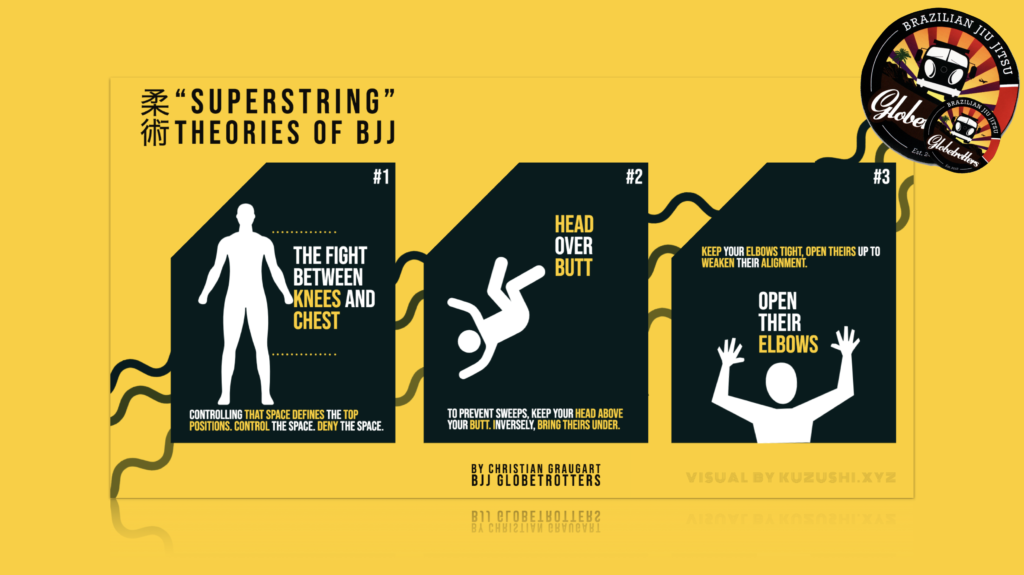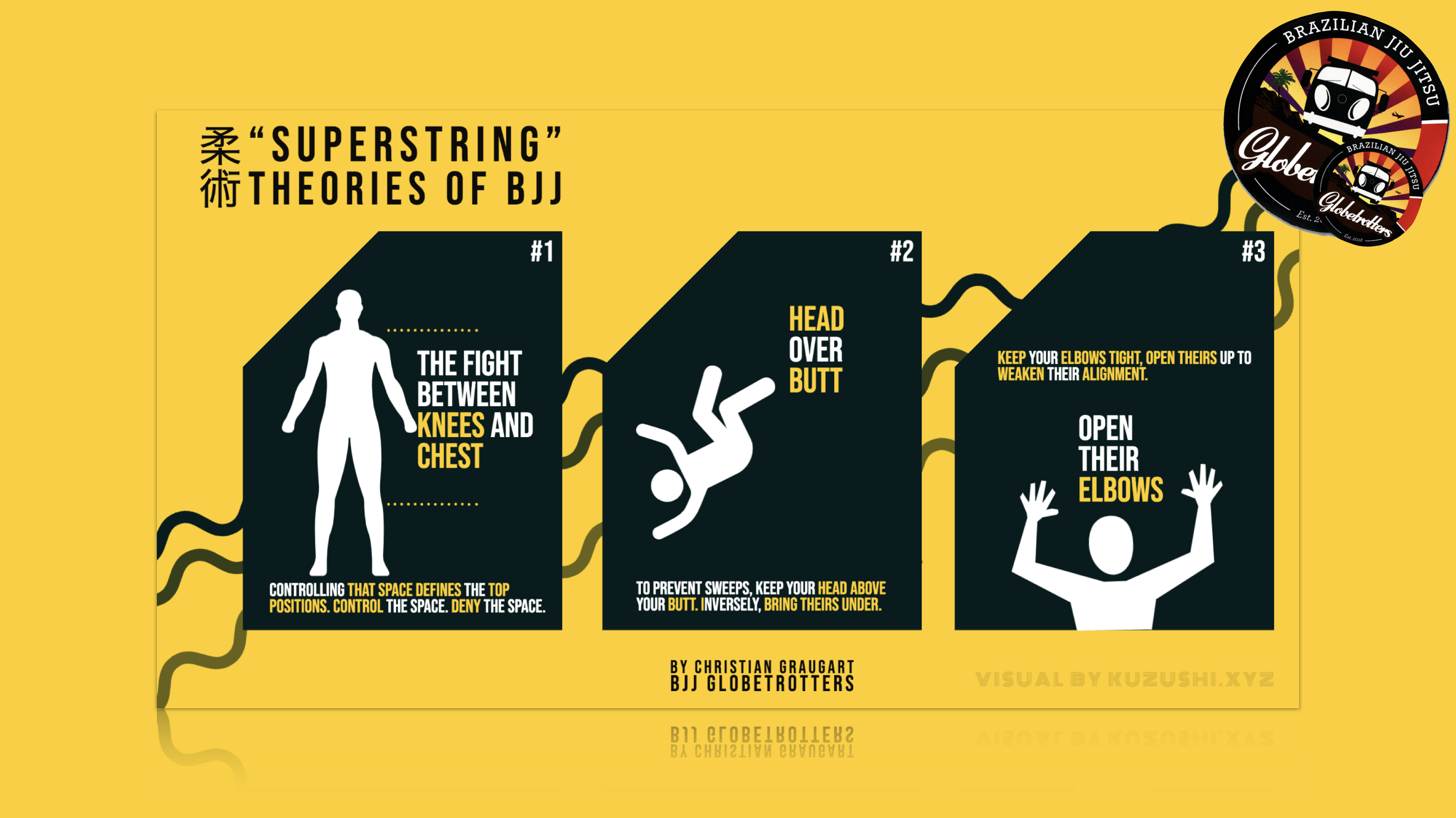“Heuristic” is a fancy term for “rule of thumb”, but let’s dig deeper.
A heuristic ( Ancient Greek εὑρίσκω, “find” or “discover“) is an approach to problem solving through a practical method that is not guaranteed to be optimal, perfect or rational, but which is nevertheless sufficient for reaching short-term goals.
Heuristics can be mental shortcuts that ease the cognitive load of decision making.
A lady I know was told jokingly, when asking what she should do before her first sparring session :
“don’t punch anybody!”. It is pretty funny, but not exactly helpful.
“All models are wrong, some are useful”
How about these three from Christian Graugart of BJJ Globetrotters ?
- Control the space between their knees and their chest
- Keep your head above your butt not to get swept
- Open their elbows to weaken their alignment before going for submissions.

Boom! Three useful heuristics for three of the most important parts of Jiu Jitsu : Passing the guard, sweeping and submissions.
Source below : Globetrotters in Action (58 min seminar)
“keep showing up“, “just train more“.
While there is some validity to these advices, they are not enough to the enquiring minds. I much prefer good heuristics distilled from decades of practice.
I love models and concepts, I find them invaluable to inform practice and strategy.
Here’s a random list of some more I should elaborate on at some point:
Bait, trap, create triggers
Make the opponent play your game
Anticipation is the first line of defense
Give your opponent the opportunity to make mistakes
Give them dilemmas, not problems to solve (Danaher)
Develop your own adaptable problem-solving algorithms (R.Biernarcki)
Escaping is not enough (Tonon)
Think in odds
Sequences and systems are better than individual submissions
Develop complementary moves
Switch before the point of no-return
Switch sides to force an overcommit
Disrupt the opponent’s head
What’s their way out?
What do they want?
Avoid submission tunnel-vision
You can only get as good as your training partners
Be the partner you wish you had
Make yourself vulnerable in training
Mindless practice makes permanent
Mindful practice makes perfect
Small muscles to hold, big muscles to move (V.Koulikov)
Weighted and unweighted
Keep the pressure when switching grips
Redirect and collapse their frames
Feel their base
Eliminate the slack
Placeholder System (R.Hall)
Rubber Band effect (Rener)
Baby hooks (Keenan)
Recognize Triggers, “affordance”, patterns.
Best option from the energy given to you.
Fluid Momentum > Position > Submission (Karel Pravec)
Attack with a back-up plan (Karel Prance)
Learn Something from your opponent with every grip and move (Rener)
Ars longa, vita brevis
